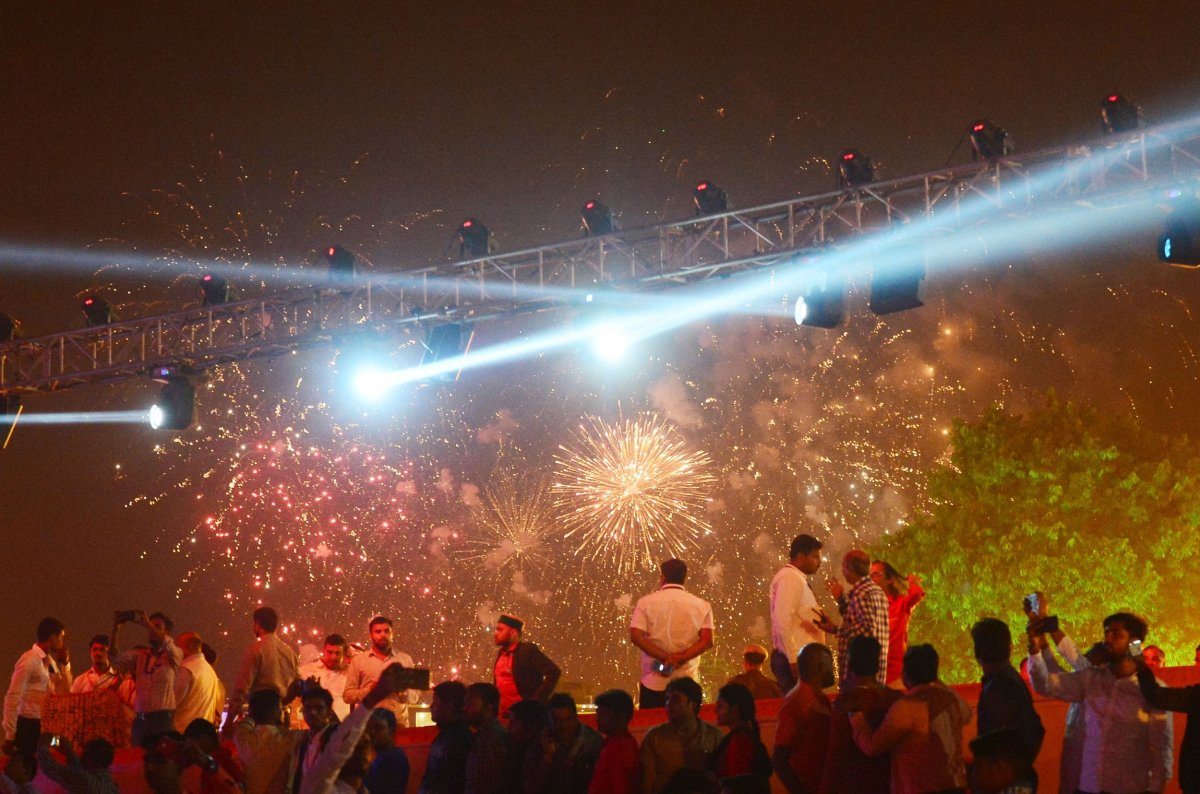People around the world are currently celebrating Diwali—the "festival of light"—which is one of the most important dates on the Hindu religion's calendar.
During the festival, people commonly send greetings to family and friends to wish them a happy Diwali. Now, revelers have a new option for doing this.
Last week, WhatsApp rolled out its new "Stickers" feature for Android and Apple iOS in a bid to provide users with more ways to communicate, alongside emojis, gifs and other media. The new feature currently includes 12 sticker packs, although third-party collections—including Diwali themed options—are also available from the Google Play Store or the Apple App Store.
To send Diwali stickers, first ensure that you have the latest version of WhatsApp. If not, update the app via either store.
Next, open up a chat window and click on the new "stickers" icon in the message input bar (if you are using Android you will have to click on the "emoji" icon first.) Then press the "plus" icon on the right-hand side of the screen. This should display the pre-installed sticker packs.
Scroll down to the bottom of the list and click on the option "Get more stickers" to open your app store, in which you should type "Diwali Stickers for WhatsApp" in the search bar. Add the sticker pack you want by tapping on it. Then go back to the message input bar and click on the "stickers" icon to use.
Read more: Happy Diwali 2018: Best wishes, greetings and quotes for Hindu festival of lights

Read more: Diwali 2018 in photos: World celebrates the festival of lights
Known as the "festival of lights" or Deepavali, Diwali falls on a different day every year (always between mid-October and mid-November). The exact dates vary depending on regional interpretations of the traditional Hindu calendar.
The festival revolves around the symbolic victory of light over darkness, representing the triumph of good over evil, purity over impurity and knowledge over ignorance.
During Diwali—which typically lasts five days—temples, homes, shops, offices and streets across India are decorated with elaborate light displays and colorful garlands. People also light small earthenware lamps filled with oil—called "diyas"—placing them around the home or setting them adrift on rivers and streams.
For many people in India, the lighting of the oil lamps is intended to honor Lakshmi—the goddess of wealth, fortune and prosperity—and guide her presence into the home. This practice also celebrates a Hindu legend regarding the return of Rama—the seventh incarnation of Vishnu, one of the principal deities in Hinduism—after a long exile.
Generally, Diwali is a time for rejoicing, visiting friends and family, cleaning and decorating houses, exchanging gifts, feasting, setting off fireworks, wearing new clothes and settling business deals, according to the Encyclopedia Britannica.
Diwali is also important to people of other Indian faiths, such as Jains, Sikhs and some Buddhists, who celebrate it for differing reasons.
Uncommon Knowledge
Newsweek is committed to challenging conventional wisdom and finding connections in the search for common ground.
Newsweek is committed to challenging conventional wisdom and finding connections in the search for common ground.
About the writer
Aristos is a Newsweek science reporter with the London, U.K., bureau. He reports on science and health topics, including; animal, ... Read more
To read how Newsweek uses AI as a newsroom tool, Click here.








